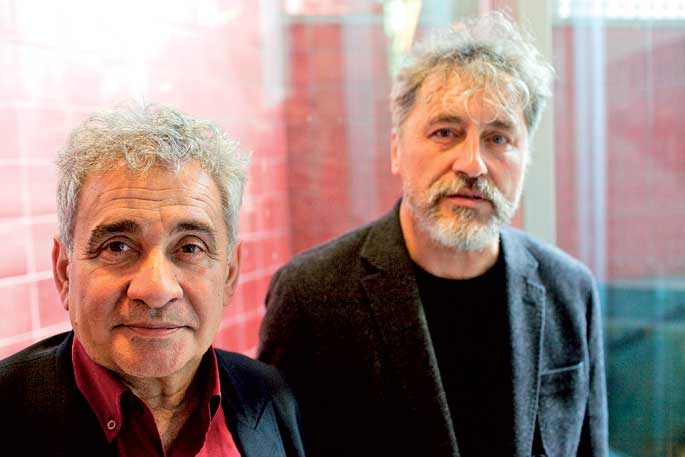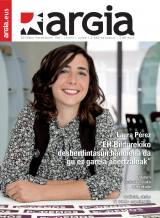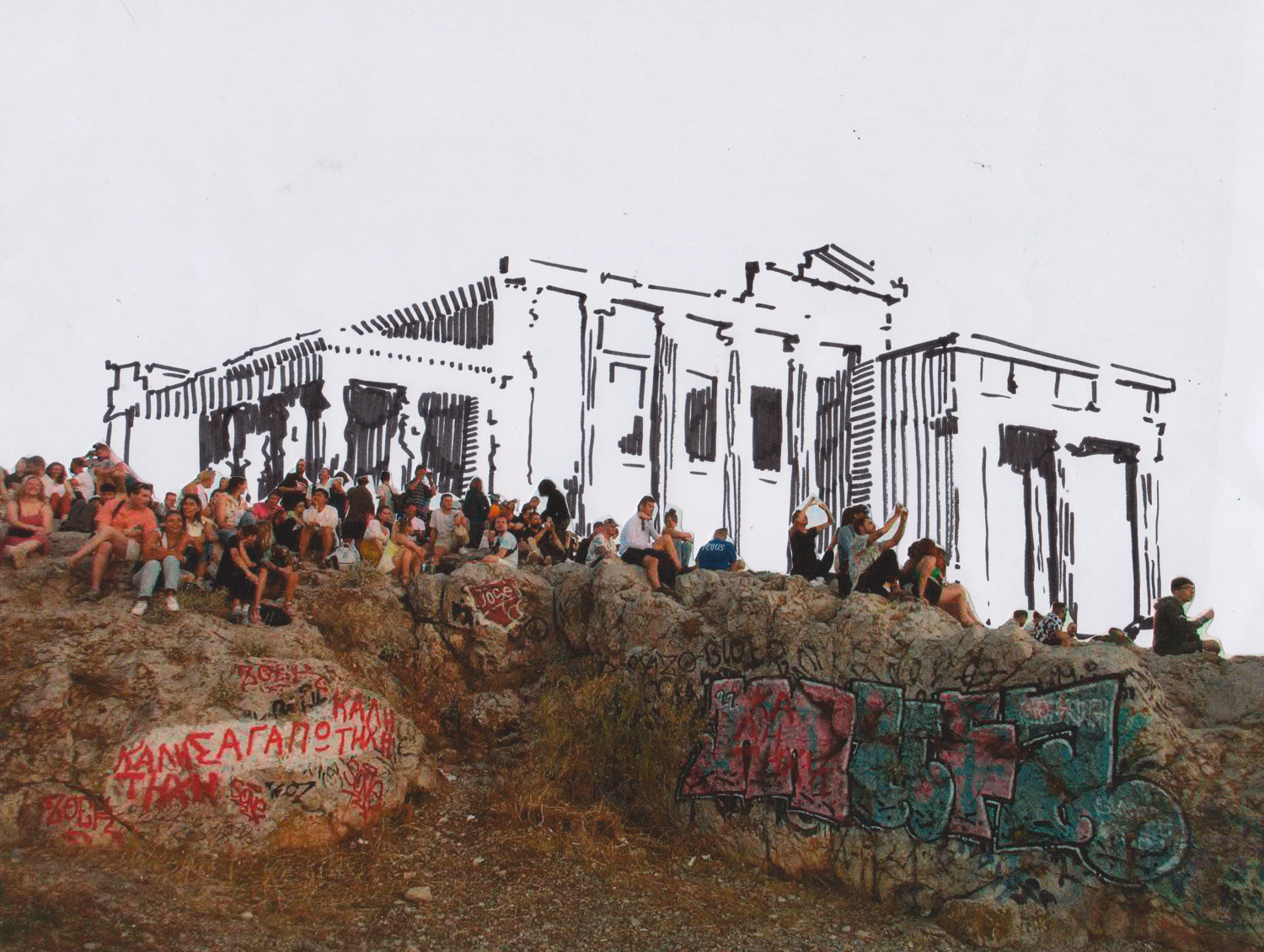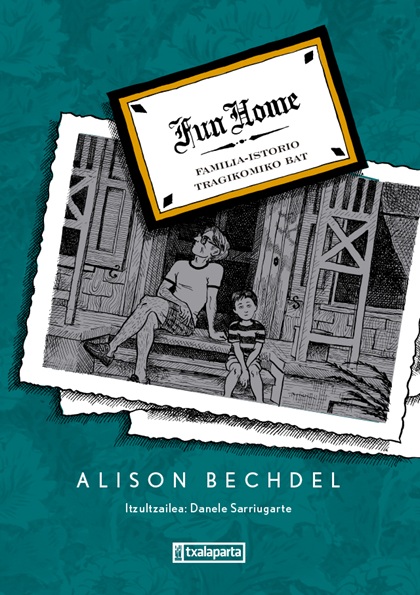A day in Barcelona
- Bernardo Atxaga and Manuel Rivas have been in the Catalan capital, invited by the Galician and Basque lectorates of the Autonomous University, on the eve of Sant Jordi. One session at noon and one at sunset. But if it wasn't a continuum that started in the morning and ended within a few hours of the night. Of course, what was said outside working hours will not be picked up here. Night for those of the night. These were the ones that were said in the light of the day.

Atxaga and Rivas. Rivas and Atxaga. Barcelona. Catalonia. Only Quim Montó, the host, was missing to repeat what has been repeated over and over again: Three of the only peripheral writers who accept the Spanish literary systems, one for each historical nationality, come to each other. Not on this occasion on behalf of the peripheral literatures, but of the national literatures most alien to his will. Atxaga said, we all think that the world we live in is central, not dependent on something. That there are no peripheries, that want to reduce us at the provincial level. In short, everything is a conflict around centrality.
But I don't know if he's a representative of national literatures. First, because they didn't come to work as ambassadors. The ambassador is a sample obtained from a whole that, according to Atxaga, would replace the whole. What to do when, in the absence of a compact origin, we have more than the whole thing? What should be done when the figure of the writer should be, precisely, conflicting with the community? According to Rivas, the challenge of the author is, at most, to be a discordant voice within the community.
Both, on the contrary, have, without wanting to, played the role of representatives of the Basque and Galician literatures. Otherwise the two would not be together in Barcelona. Otherwise they would not fill, as they have done, every room of the two sessions – it is empirical: other writers have come. They are the only writers (almost) who have passed through the filter that marks Madrid. Both are National Prizes, of course in Spain: In 1989, he published Atxaga, Obabakoak; later, Rivas, in 1996, What do you love? collection of narratives. Both of them have had the support of the Hurry Group, despite a nightmare, to open their way in a broad state.
Surely it would help the image that both have drawn from the state. Let's go to the practical: Seven houses in France were edited almost simultaneously in Basque, Galician, Catalan and Spanish. Rivas published the collection of poems A muerte da neve, in the four official languages of the Spanish State, entitled The disappearance da neve. And today, at least until breakfast time, no one has spoken about it. In this regard, Atxaga has pointed out that the relationship between the literatures of the different languages is practically impossible. And not only the supposed peripheries in relation to the supposed center. What seems most surprising is that the most disappointing is the lack of relationship between the alleged peripheries.
From the literature
But let's talk about serious things. He referred to literature. The passage of the filter through Madrid is not the only similarity between the two authors of the work. There are some lines that go through the literature of both: they have achieved fame as storytellers, but they are also remarkable poets; they have wanted to catch past times like the war of 36; they have shown affection towards cows, The memories of a Basque cow versus One Million Memorable Cows; The character of Rivas Dombodan, which appears in different stories but always has similar characteristics: silent, which could be Rivas recognized that they share the view, the desire to look at the world with other eyes.
Another similarity that has been pointed out to them is that of writing in the rural field. Atxaga rejected the classistic stigma that some attribute to rural life. Rivas added that the first cows seen were urban, on a grassland in the neighborhood of Montealto de A Coruña. Of course, the reconversion of the city made the meadow disappear, and the cows with the grasses. Rivas recognizes a primacy point of view in magical realism and similar labels. Rather than magical realism, he prefers the definition of Max Aub, transcendental realism, which wants to go further. And that more than geography, more psychogeography are the ones in her book, mixtures of different worlds.
For Atxaga, space is not that important. What's really important is what you do there, remember, sufres. He added that the core of the literature are the details, in line with what was said by Catalan Josep Pla. The knot that Atxaga wanted to release in his work: trying to understand the place he has known the most. In an instant he understood that his birthplace was an ancient place. That there was a thread that lasted two thousand years and that was broken by the arrival of television. It wasn't good for him to talk about violence, it wasn't his world, but it had inevitably been imposed on him. The writer has to face up to important things, so that's the commitment, to have a cable to the earth. For his part, Rivas, as far as compromise is concerned, the nuance is important. And Miguel Torga said: the first commitment of the writer is to write. And everything you write compromises you.
And there's another place, the other side, not just the spectacular. Poetry tries to look for that other place, says Atxaga. For Rivas, poetry is the first language, the stem cell. They remembered the first lines of verses: “You have the eyes of the color of the onix, and your hair is like the brunette of a brunette of Guadix,” Atxaga. Then he began writing in Basque as he went to Bilbao. As for the choice of language, Rivas remembered his father's tie: the tighter the tie, the better the Spanish spoke. They both arrived in Barcelona without a tie that squeezed their neck.
Party and recreation. Oral History of Rock Radical Vasco
Javier 'Jerry' Corral
Books, 2025
------------------------------------------------
Javier Corral ‘Jerry’ was a student of the first Journalism Promotion of the UPV, along with many other well-known names who have... [+]
Itsasoa bete urre
Dani Martirena
Irudiak: Ana Ibañez
Txalaparta, 2022
--------------------------------------------
Liburu honetara barneratzen den irakurleak sentsazio ugari izango ditu. Deigarria da azaleko letren urre kolorea eta zuritasuna, goialdean ageri den... [+]
Hirietako egunerokoa interesatzen zaio Sarah Babiker kazetariari; ez, ordea, postaletako irudia, baizik eta auzoetan, parkeetan, eskoletan, garatzen den bizitza; bertan dabilen jendea. Lurralde horretan kokatzen dira bere artikuluak, baita iaz argitaratu zituen bi lanak ere... [+]
Migranteak
Issa watanabe
1545 argitaletxea, 2024
-------------------------------------------
Ezagutzen ez nuen 1545 argitaletxeak 2024an itzuli eta kaleratu du Issa Watanaberen Migranteak liburua. Animalia talde batek egiten duen migrazio prozesua kontatzen du; eta... [+]
Adania
Shibli
Translation: Aitor Blanco Leoz
Igela, 2024
----------------------------------------------
During these days, an Israeli soldier is bombarding hospitals, schools, Palestinian refugee camps with drones as if it were a video game, while in the West we see on... [+]
Winter has always happened to me melancholy. It was time to look out the window and remember. An ineluctable bureaucracy between autumn and spring, painting back blank on a vertical parcel to reflect whatever you want. It's not just my business, those who forget that the snow is... [+]
Fun Home. A tragic family
history Alison Bechdel
Txalaparta, 2024
---------------------------------------------
Fun Home. Alison Bechdel is known for the first publication of the graphic novel A Tragic Family Story (2006), although he himself participated in several... [+]
























ilbeltza-(1).jpg)
